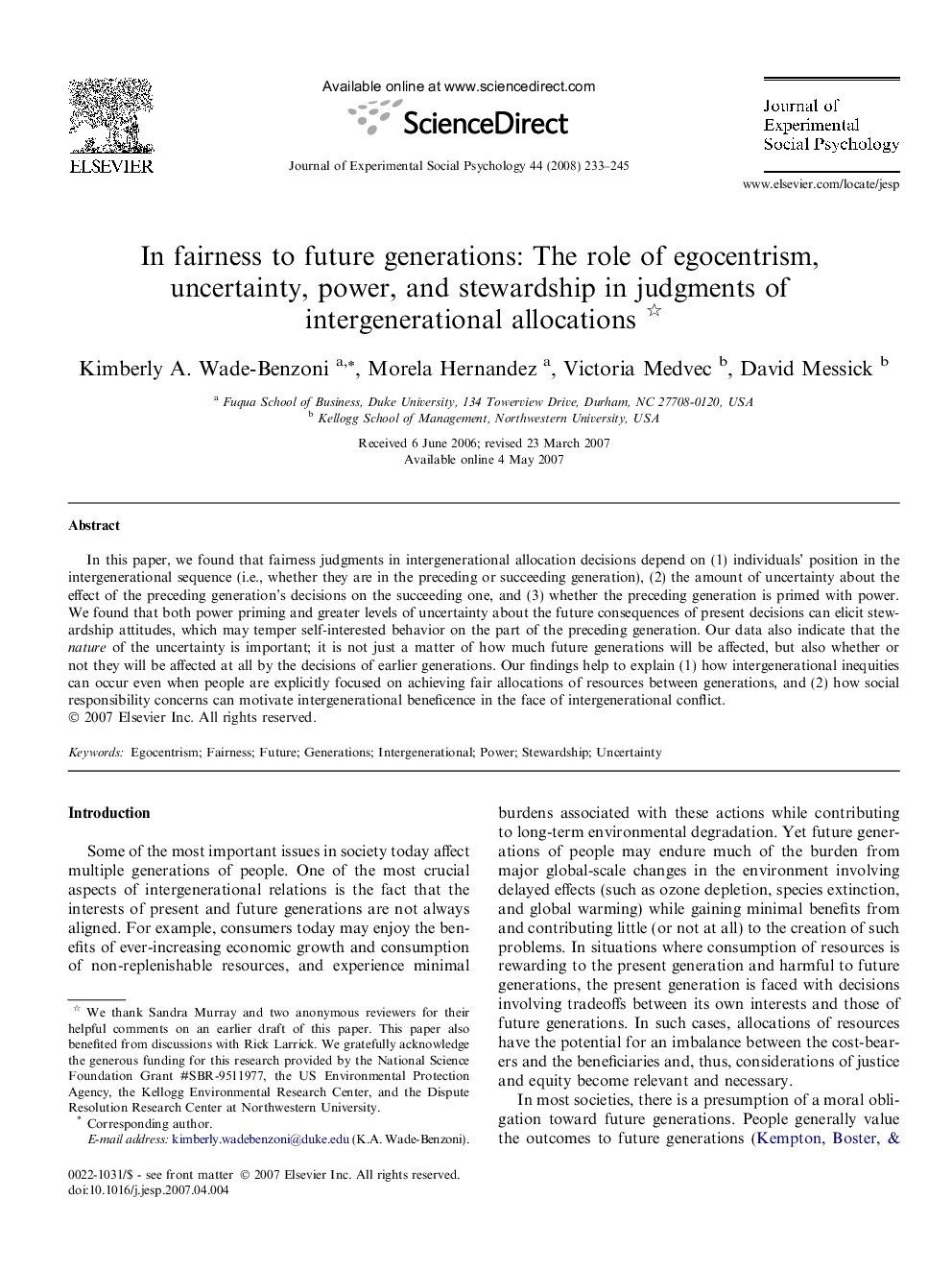| Article ID | Journal | Published Year | Pages | File Type |
|---|---|---|---|---|
| 948535 | Journal of Experimental Social Psychology | 2008 | 13 Pages |
In this paper, we found that fairness judgments in intergenerational allocation decisions depend on (1) individuals’ position in the intergenerational sequence (i.e., whether they are in the preceding or succeeding generation), (2) the amount of uncertainty about the effect of the preceding generation’s decisions on the succeeding one, and (3) whether the preceding generation is primed with power. We found that both power priming and greater levels of uncertainty about the future consequences of present decisions can elicit stewardship attitudes, which may temper self-interested behavior on the part of the preceding generation. Our data also indicate that the nature of the uncertainty is important; it is not just a matter of how much future generations will be affected, but also whether or not they will be affected at all by the decisions of earlier generations. Our findings help to explain (1) how intergenerational inequities can occur even when people are explicitly focused on achieving fair allocations of resources between generations, and (2) how social responsibility concerns can motivate intergenerational beneficence in the face of intergenerational conflict.
